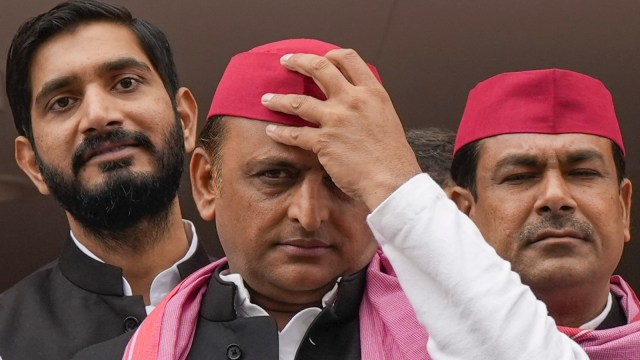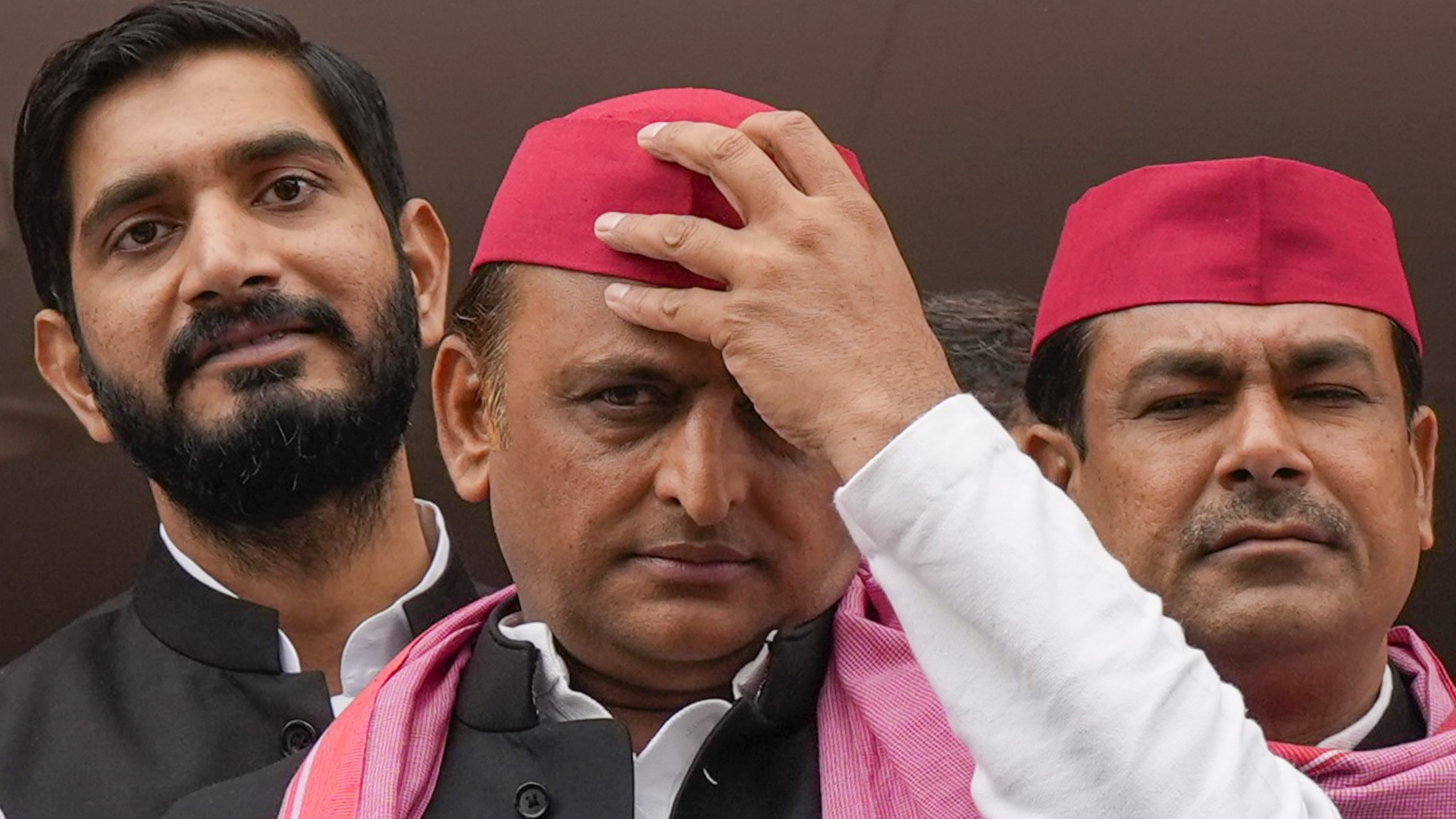
India’s general election results have been unprecedented in many ways. The BJP failed to reach the majority mark. A new phase of coalition government has begun. This was not on the cards according to most political analysts. The exit polls predicted a massive majority for the BJP.
In contrast, the INDIA bloc partners nailed the results. Uttar Pradesh, considered a stronghold of the BJP and its Hindutva politics, now appears to be in the grip of a Samajwadi wave. The Samajwadi Party emerged as the single largest party in UP in the Lok Sabha election and the third largest party in Parliament. It has bagged 37 seats, raising its tally from the five in the 2019 election. This was the SP’s best performance in the history of Lok Sabha elections.
What enabled the SP to achieve these numbers? Both a top-down and a bottom-up approach explain the phenomenon. But it is the bottom-up approach, namely the rise of a new subaltern class in the neo-liberal economy, that holds the key to future political debates. Those who are in search of jobs or are precariously employed with poor salaries and minimal social security benefits make up this new subaltern.
The new subalterns
What enabled SP’s stellar performance is its construction of a narrative arc — what I call “subaltern justice”. This is done with a mix of social and economic justice calls. A large part of this subaltern comprises the victims of the informal economy — those who now have a presence both within the government and in the private sector. Holding together the economically and socially oppressed has been the key to this election for the SP. These included those who faced a job-cum-identity crisis and those who have been on the margins of the public resource distribution system and a neo-liberal economy. These were the people who related to SP’s messages and the INDIA bloc’s narrative — and circulated it further.
Of their concerns, the most important has been the inability of the ruling party to stop examination paper leaks and resolve the recruitment issue of 69,000 teachers (Uttar Pradesh Teacher Eligibility Test). Young people have been protesting in Lucknow and on social media for years for fair conduct on these matters. Paper leaks, resultant exam cancellations, controversial results, and delayed joining have been some key grievances.
SP chief Akhilesh Yadav dealt with unemployment with sensitivity and raised the issue in his speeches. He persuaded his listeners on grounds of the repeated failures of the current government to conduct fair exams. Post-victory, this issue has assumed fresh significance following the cancellation of the UGC-NET exam.
Grievances around employment were not limited to paper leaks. They were also linked to unsatisfactory implementation of reservation policies in job recruitment. The emphasis on a caste census and the INDIA leaders’ rhetoric to protect the Constitution brought them closer to the Scheduled Caste and Scheduled Tribe groups and Other Backward Classes. These groups consider reservation a key issue for their social and economic mobility. The INDIA bloc leaders, Rahul Gandhi and Akhilesh Yadav, made the Constitution a symbol of the election. Both parties’ key messages in UP were job creation and better implementation of reservation — proportionate to the population (“Jitni aabadi, utna haq”). Even though Congress failed to give proper language to its half-baked ideas of the socio-economic distribution of public resources, the counterattack of BJP leaders made the manifesto of Congress, the Nyay Patra, the talk of the election. Things such as financial assistance of Rs 1 lakh to poor women (Mahalakshmi Scheme) struck a chord.
In the subaltern justice politics of the SP, we also find a return to the dreams and visions of the party’s chief ideologue, Ram Manohar Lohia, who advocated for the rights of Dalits, backward classes, women, and tribal communities and demanded 60 per cent reservation for them. Akhilesh Yadav’s PDA strategy — standing for the welfare of pichhde (backwards), Dalits, alpsankhyak (minorities) and aadhi abadi (women), has echoes of Lohia’s vision. It played a crucial role in steering new voters beyond the core support base of the SP — Yadavs and Muslims. A direct implication of this strategy can be seen in the selection of SP candidates. For instance, Yadav gave a ticket to Awadhesh Prasad, a senior leader in the SP who hails from the Pasi community, from the non-SC reserved Faizabad seat. He also shared the front row with him in Parliament. Winning Ayodhya — which political commentators hailed as the centre of Hindutva politics, especially after the consecration of the Ram Mandir — is also symbolic of the story at the national level. It is not a coincidence that Prasad, who started his political career in the 1970s with Chaudhary Charan Singh and Mulayam Singh Yadav, is close to Akhilesh Yadav, who is trying to fill the political and electoral gap created by the slow demise of the BSP’s vote base. It is possible that Prasad will be given more key responsibilities as he represents both the symbolic and actual victory of the PDA strategy. His name as the candidate for the Deputy Speaker post is also doing rounds.
A wave contained
Though the BJP-led NDA alliance has successfully formed a secure government and Prime Minister Narendra Modi retains his top seat, the Opposition has not foregone any opportunity to assert its boosted presence in the first week of parliamentary functioning. It has encircled the government on the NEET exam issue and has decided to field a candidate for the Deputy Speaker post. The question is whether the SP’s PDA strategy will continue to keep the saffron wave contained. It needs to offer concrete, clear ideas to the people. As we progress, what solace does politics offer to those employed on precarious contracts or with no contracts on low salaries? Their lives encapsulate both the injustice of social and economic life. They are the new subalterns of our times.
Kumar is a historian based at Nottingham University, UK



